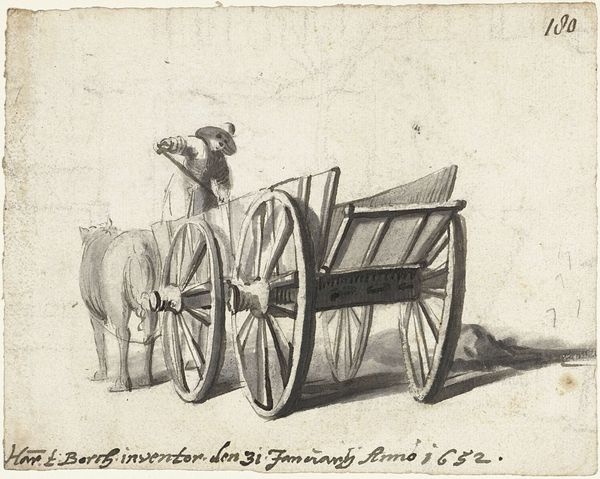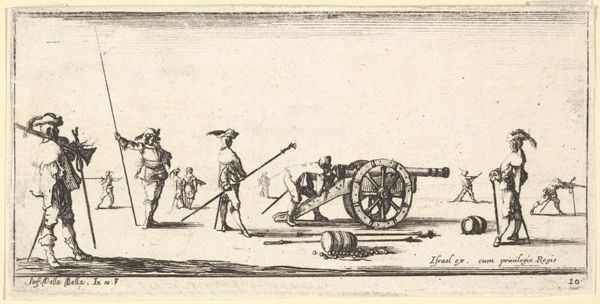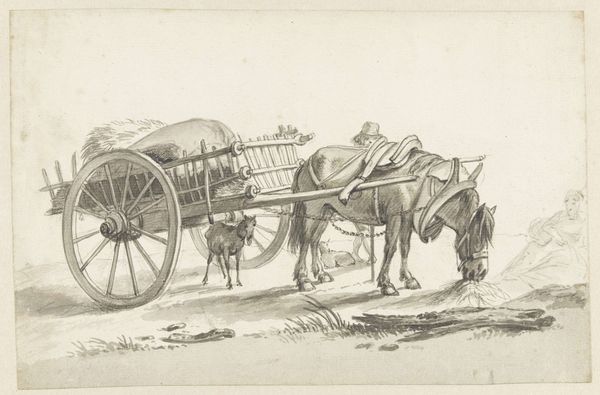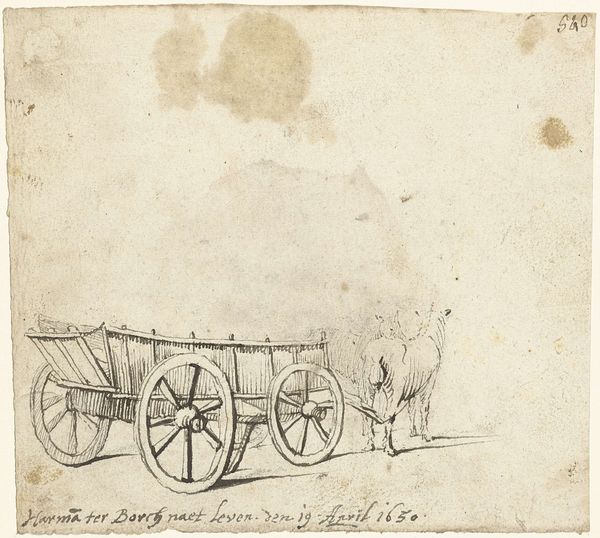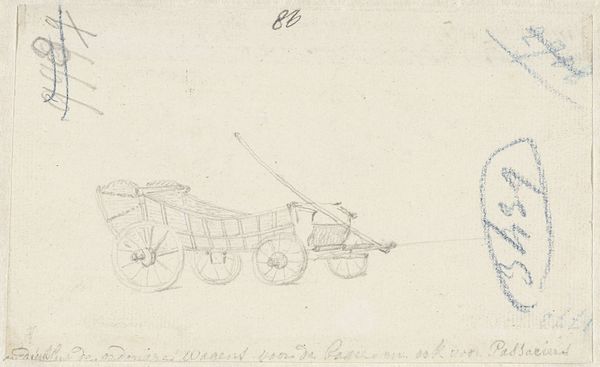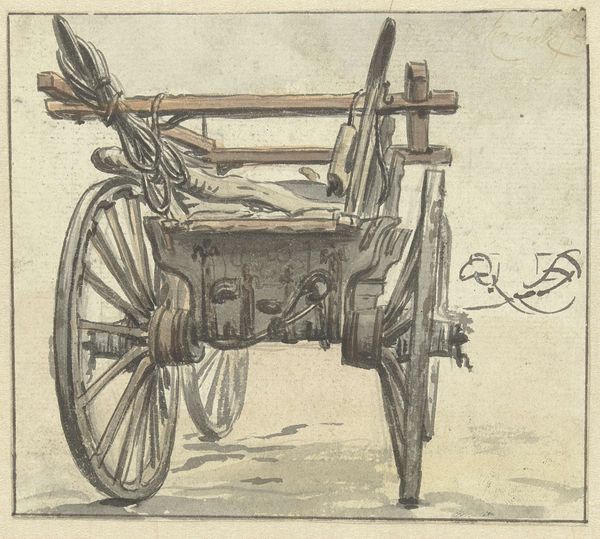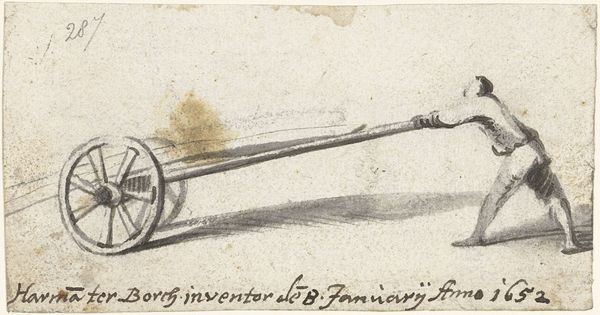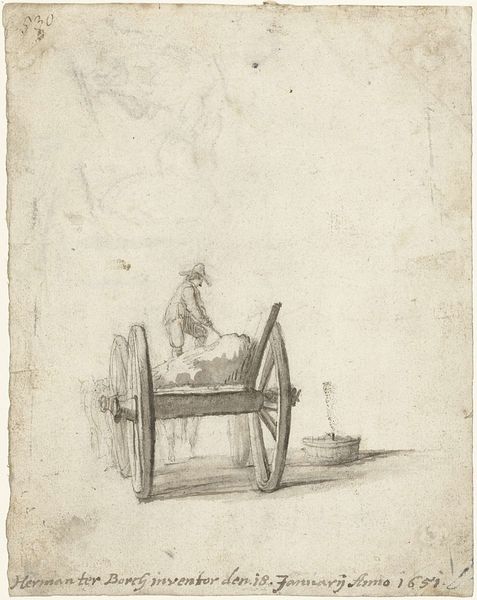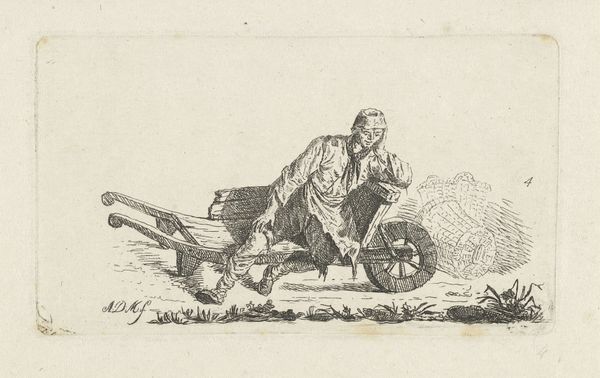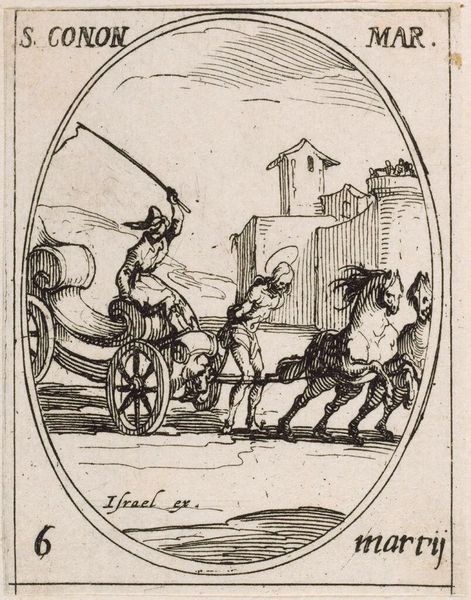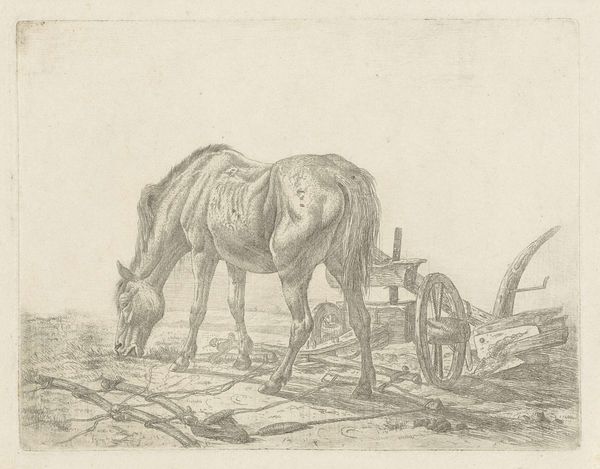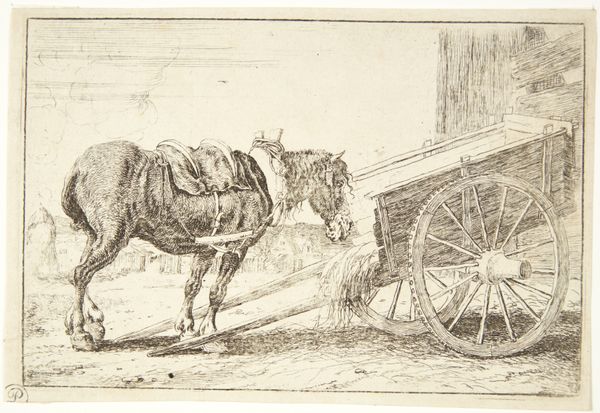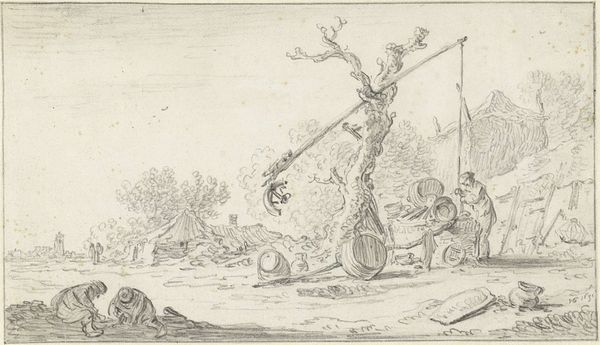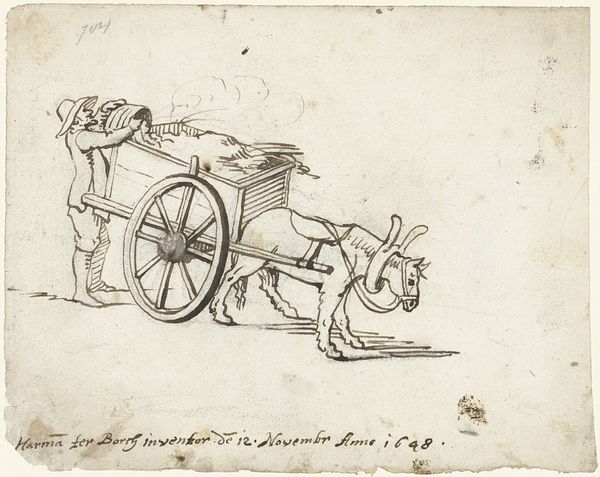
drawing, paper, ink
#
drawing
#
dutch-golden-age
#
landscape
#
paper
#
ink
#
line
#
genre-painting
#
realism
Dimensions: height 103 mm, width 163 mm
Copyright: Rijks Museum: Open Domain
This drawing of a wagon with two horses alongside was made in 1653 by Harmen ter Borch. The wagon itself is a powerful symbol. Across cultures, the wagon represents not just transportation, but the journey of life itself, carrying our burdens and treasures. From the ancient world to Ter Borch’s time, we see wheeled vehicles in various forms. Consider the chariots of antiquity, symbols of power and warfare, or the humble carts of peasants, each bearing its own tale of labor and perseverance. This wagon resonates with images of Ceres, goddess of agriculture, who is often depicted riding a chariot, representing the fertility of the earth and the cyclical nature of life. The wagon appears as a motif that evolves, reflecting society’s changing needs and aspirations. The wagon, pulled by horses, is a vessel laden with meaning, connecting us to ancestral memories and the collective human experience.
Comments
No comments
Be the first to comment and join the conversation on the ultimate creative platform.
